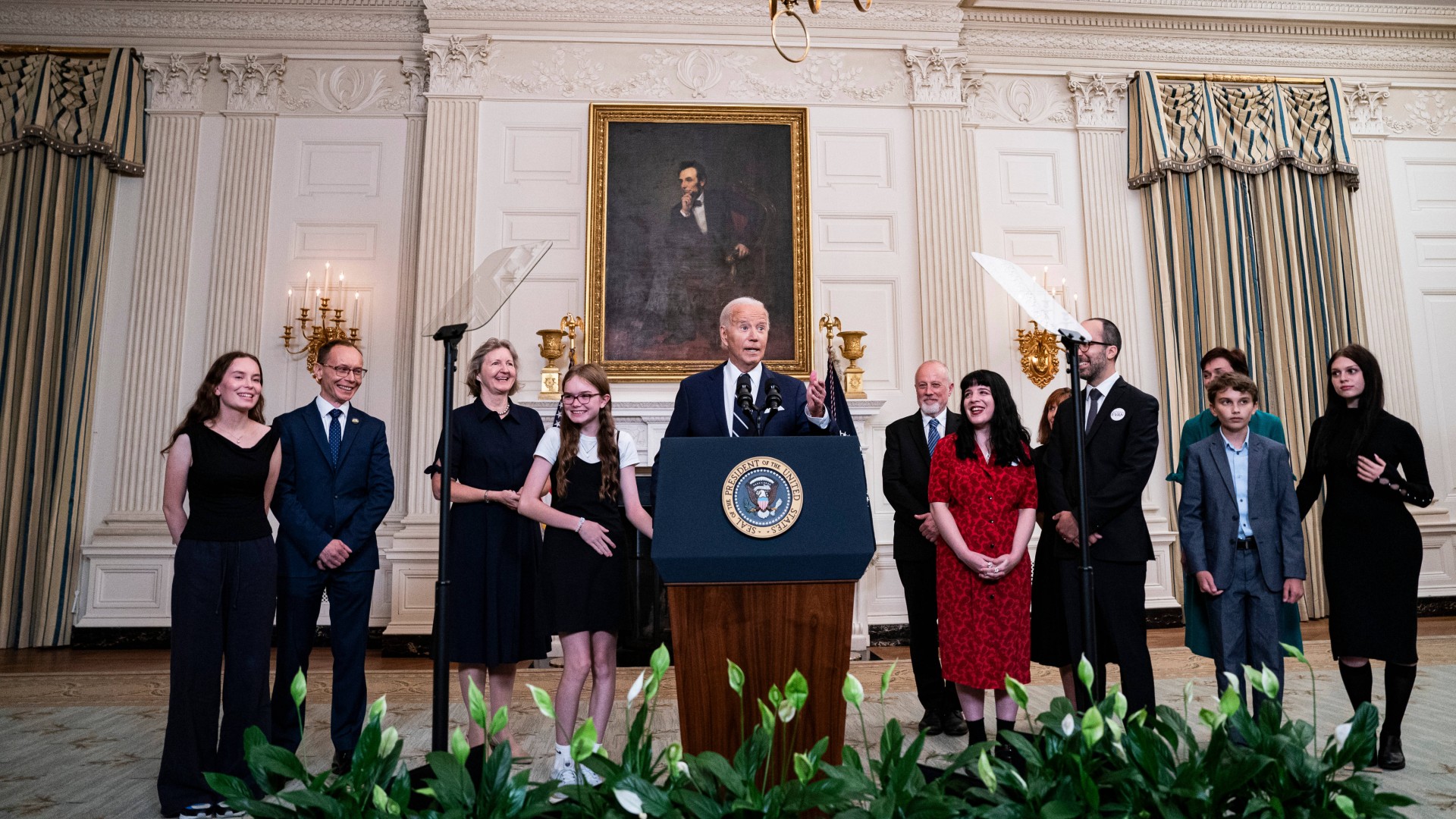US-Russia prisoner exchange: biggest since Cold War
24 people, including Wall Street Journal reporter Evan Gershkovich, were released from Russian custody


A free daily email with the biggest news stories of the day – and the best features from TheWeek.com
You are now subscribed
Your newsletter sign-up was successful
What happened
At least two dozen people, including the Wall Street Journal reporter Evan Gershkovich and four other Americans, were released from Russian custody on Thursday as part of a massive prisoner exchange involving seven nations and months of negotiations.
Who said what
Americans Gershkovich, Vladimir Kara-Murza, Alsu Kurmasheva, and Paul Whelan were "unjustly imprisoned" and are "finally coming home," President Joe Biden said on Wednesday. Their release was a "feat of diplomacy" that also saw five Germans and seven Russian citizens freed from Russian imprisonment in exchange for eight Russians, including convicted murderer Vadim Krasikov.
The prisoner swap was the "largest and most complex" of its kind "since the Cold War," The Wall Street Journal said. It was the result of an "elaborate web of negotiations behind the scenes" involving seven countries and is a "diplomatic victory for President Biden," The New York Times said. The exchange took place in Turkey, "increasingly familiar grounds for prisoner swaps."
What next?
At least eight Americans are "still left behind in Russian detention," The Washington Post said. As part of the conditions for releasing Gershkovich, the reporter was allowed to leave with the "makings of a book he had labored over," the Journal said. He was also required to write a request for clemency from Russia's President Vladimir Putin. In his letter, Gershkovich asked if Putin would be "willing to sit down for an interview."
The Week
Escape your echo chamber. Get the facts behind the news, plus analysis from multiple perspectives.

Sign up for The Week's Free Newsletters
From our morning news briefing to a weekly Good News Newsletter, get the best of The Week delivered directly to your inbox.
From our morning news briefing to a weekly Good News Newsletter, get the best of The Week delivered directly to your inbox.
A free daily email with the biggest news stories of the day – and the best features from TheWeek.com
Rafi Schwartz has worked as a politics writer at The Week since 2022, where he covers elections, Congress and the White House. He was previously a contributing writer with Mic focusing largely on politics, a senior writer with Splinter News, a staff writer for Fusion's news lab, and the managing editor of Heeb Magazine, a Jewish life and culture publication. Rafi's work has appeared in Rolling Stone, GOOD and The Forward, among others.
-
 Should the EU and UK join Trump’s board of peace?
Should the EU and UK join Trump’s board of peace?Today's Big Question After rushing to praise the initiative European leaders are now alarmed
-
 Antonia Romeo and Whitehall’s women problem
Antonia Romeo and Whitehall’s women problemThe Explainer Before her appointment as cabinet secretary, commentators said hostile briefings and vetting concerns were evidence of ‘sexist, misogynistic culture’ in No. 10
-
 Local elections 2026: where are they and who is expected to win?
Local elections 2026: where are they and who is expected to win?The Explainer Labour is braced for heavy losses and U-turn on postponing some council elections hasn’t helped the party’s prospects
-
 Trump links funding to name on Penn Station
Trump links funding to name on Penn StationSpeed Read Trump “can restart the funding with a snap of his fingers,” a Schumer insider said
-
 Trump reclassifies 50,000 federal jobs to ease firings
Trump reclassifies 50,000 federal jobs to ease firingsSpeed Read The rule strips longstanding job protections from federal workers
-
 Supreme Court upholds California gerrymander
Supreme Court upholds California gerrymanderSpeed Read The emergency docket order had no dissents from the court
-
 700 ICE agents exit Twin Cities amid legal chaos
700 ICE agents exit Twin Cities amid legal chaosSpeed Read More than 2,000 agents remain in the region
-
 Trump demands $1B from Harvard, deepening feud
Trump demands $1B from Harvard, deepening feudSpeed Read Trump has continually gone after the university during his second term
-
 House ends brief shutdown, tees up ICE showdown
House ends brief shutdown, tees up ICE showdownSpeed Read Numerous Democrats joined most Republicans in voting yes
-
 Trump’s Kennedy Center closure plan draws ire
Trump’s Kennedy Center closure plan draws ireSpeed Read Trump said he will close the center for two years for ‘renovations’
-
 Trump's ‘weaponization czar’ demoted at DOJ
Trump's ‘weaponization czar’ demoted at DOJSpeed Read Ed Martin lost his title as assistant attorney general
